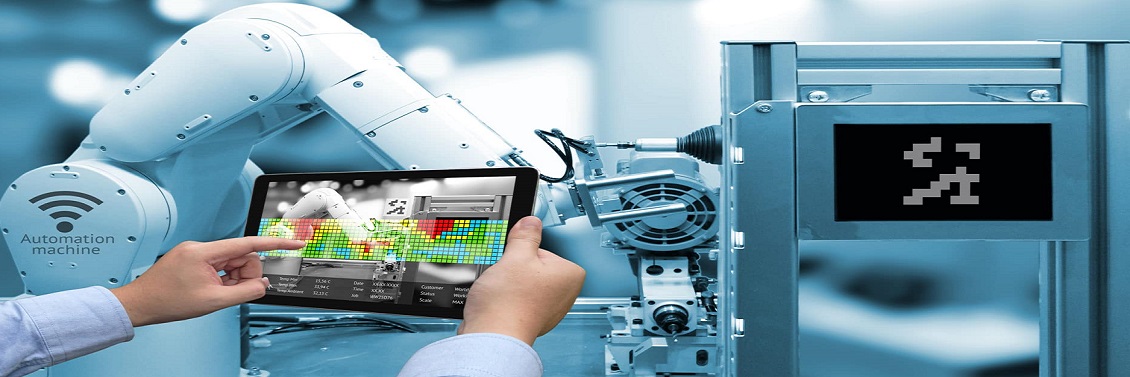Lean Manufacturing, IoT and Industry 4.0

Source: Bourton Group
It has been said that Industry 4.0, or “The Internet of Things” or “increased automation”, is set to revolutionise the workplace.
Twenty years ago, we were told that children starting school at the time would be leaving university and going into jobs that weren’t yet invented. Now we need to adjust to the thought that today’s five-year-olds might not be emerging into a world of work at all, but one where most jobs are done by robots, algorithms and self-service check-outs, and they simply reap the rewards.
For those of us working today, and particularly those focussed on improving businesses in the here and now, what impact will this transition to a new way of working have on our projects? What is the future for Lean Six Sigma in a world where production no longer involves people?
The one aspect of an improvement project which probably has the most to gain from manufacturing automation is data collection.
Every improvement practitioner knows that the quality of the data upon which improvements are based can mean the difference between success and failure. If you reach conclusions based on inaccurate or incomplete data then you risk implementing solutions which do not achieve your original objectives.
Accurate and reliable data collection is easier to achieve in some working environments than others. A good example of where data collection is already built in to processes is call centres. By their very nature, call centres build up masses of data as they operate. You cannot have a call centre without automatically gaining information about where the caller is calling from, roughly why they are calling, how long the call takes, which operator answers it, and what day and time it happens. Call centres are not automated, indeed they are often very labour intensive, but the job the people are doing involves interacting directly with the data collection system.
Traditional manufacturing is a world away from this, because the jobs involve interacting with machines and raw materials. If you want to collect data on production processes you often find yourself resorting to tally charts, paper forms, stop watches and measuring wheels. These are all valid techniques of course, but they are all limited in terms of the volume of data that can practically be gathered. If the predictions about Industry 4.0 come true, it’s here in the Measure phase that Lean Six Sigma projects could be revolutionised – automated processes could conceivably provide all the data for you, in real time, as the action takes place. If there’s no human intervention in the production process, there doesn’t need to be any in the data collection either.
It seems we could be facing a new world in which the data automatically generated by production systems demonstrates their processes are fine, and Lean Six Sigma can be concentrated on the issues caused elsewhere in the Value Stream. If the future for improvement in manufacturing is increased data reliability and less scope for waste in production, then those five-year-olds may not be troubled by the challenges that have faced improvement practitioners for generations.
Tags: Lean Manufacturing, Bourton Group, Internet of Things, Industry 4.0

